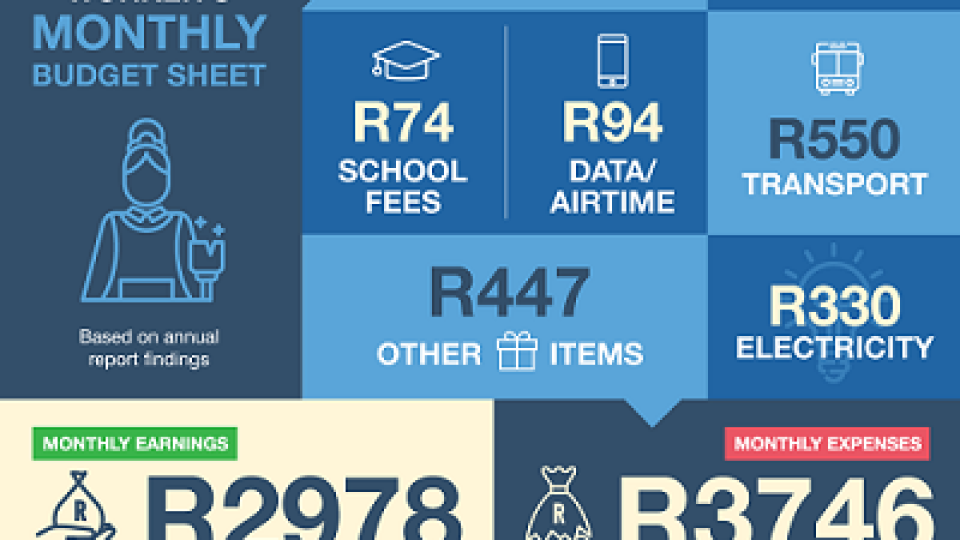by AKANI CHAUKE
JOHANNESBURG, (CAJ News) – THE effects of load shedding, inflation, cost of living and brain drain in South Africa disproportionately affect domestic workers, 94 percent who are women.
This impact is far-reaching as the average domestic worker is their family’s sole breadwinner and sole caregiver, supporting an average of four dependents at home.
This is according to SweepSouth’s 2023 Report on Domestic Workers Pay and Work Conditions.
The sixth edition of the annual report reveals that the average domestic worker in South Africa is aged 37 and earns about R2 989 (US$165,71) a month from domestic work as her only source of income while being the only breadwinner in their family.
The worker has to split this money among daily expenses such as food (which has seen 12 percent price increases over the past year), housing, transport, electricity, mobile phone data or airtime, school fees and other expenses.
The average domestic worker spends around R694 more than she earns, is unable to save, has no medical aid and owes about R3 599 to shops, friends and loan sharks, among others.
“Consistent with previous reports, we can see the significant burden placed on domestic workers to support themselves and their families at home. Continued economic difficulties will compound the pressure on workers,” said Luke Kannemeyer, Managing Director at SweepSouth.
The report also reveals masses of job losses suffered by domestic workers in the past year, with the leading cause of job losses coming from employers moving home and 59 percent of those employers moving overseas.
This represents a 15 percent increase in domestic workers who lost their means of income due to brain drain in South Africa this year, compared to 2022.
Moreover, 68 percent of those who lost their jobs last year were not registered for the Unemployment Insurance Fund. Only 52 percent of those registered were able to submit successful claims.
“This motivates the urgent contemplation of universal unemployment benefits to ensure greater coverage and easier access,” Kannemeyer added.
For the first time this year, the report also looked at the effects of South Africa’s electricity crisis and found that many domestic workers, who lost their jobs in the past year, felt that load shedding played a role in their loss of employment.
Power cuts also negatively impacted the safety and commutes of domestic workers as they navigate the rolling blackouts.
SweepSouth is an online home services platform that connects users to vetted and rated domestic workers and gardeners.
– CAJ News

